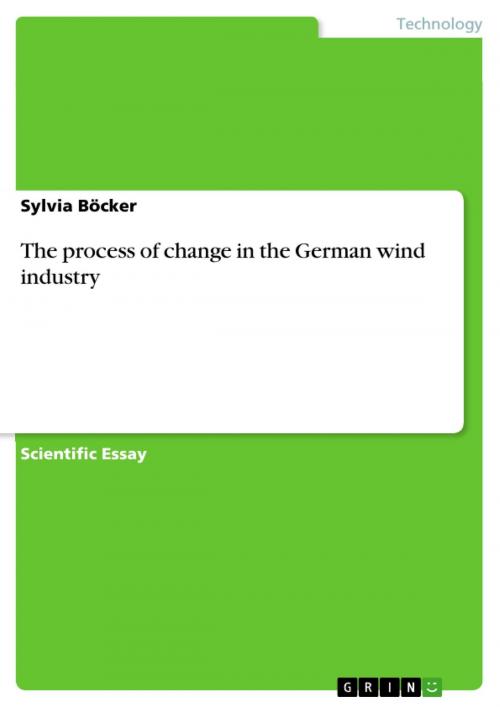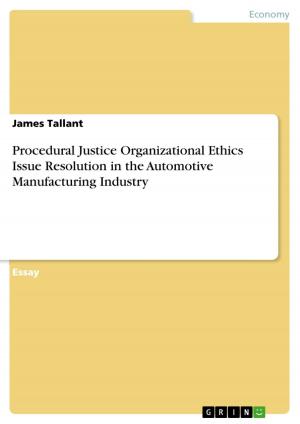The process of change in the German wind industry
Nonfiction, Science & Nature, Science, Physics, Energy| Author: | Sylvia Böcker | ISBN: | 9783656314233 |
| Publisher: | GRIN Publishing | Publication: | November 19, 2012 |
| Imprint: | GRIN Publishing | Language: | English |
| Author: | Sylvia Böcker |
| ISBN: | 9783656314233 |
| Publisher: | GRIN Publishing |
| Publication: | November 19, 2012 |
| Imprint: | GRIN Publishing |
| Language: | English |
Scientific Essay from the year 2012 in the subject Energy Sciences, , language: English, abstract: The paper identifies the necessity of a deep change process in the German wind industry. The need for change in the wind industry was given by the decision of the German government to finish nuclear energy production in the year 2022. The Fukushima accident lead to this decision and showed dramatically the urgency of finding solutions for a stable and sustainable energy production based on renewable energies. The advantages of using decentralized wind energy which is possible through installation of small wind turbines is so far less acknowledged in politics and economics. The amount of investment and the market share of small wind technology are minimal against their potential and compared to the investments which are put in centralized wind energy production with big 3 bladed turbines. The reduction of the costs for the transmission lines and the electrician transmission losses could be a major economical factor to the point that one could have a parallel grid to fulfil the requirements for power of special regions. To increase the percentage of decentralised produced wind energy it is necessary to identify the key reasons which minimise the success of the innovations in the field of small wind technology. Key factors are f.e. high costs for development and high governmental regulations as well as the lack of suitable technology. Another reason can be seen in the thinking of the core persons and decision makers in this business field as well as in politics. To be able to analyse the complex situation and get an understanding of the interconnection of different levels in this industry the systemic model by David Kantor is used which includes the normally less acknowledged level of mental models in economics.
Scientific Essay from the year 2012 in the subject Energy Sciences, , language: English, abstract: The paper identifies the necessity of a deep change process in the German wind industry. The need for change in the wind industry was given by the decision of the German government to finish nuclear energy production in the year 2022. The Fukushima accident lead to this decision and showed dramatically the urgency of finding solutions for a stable and sustainable energy production based on renewable energies. The advantages of using decentralized wind energy which is possible through installation of small wind turbines is so far less acknowledged in politics and economics. The amount of investment and the market share of small wind technology are minimal against their potential and compared to the investments which are put in centralized wind energy production with big 3 bladed turbines. The reduction of the costs for the transmission lines and the electrician transmission losses could be a major economical factor to the point that one could have a parallel grid to fulfil the requirements for power of special regions. To increase the percentage of decentralised produced wind energy it is necessary to identify the key reasons which minimise the success of the innovations in the field of small wind technology. Key factors are f.e. high costs for development and high governmental regulations as well as the lack of suitable technology. Another reason can be seen in the thinking of the core persons and decision makers in this business field as well as in politics. To be able to analyse the complex situation and get an understanding of the interconnection of different levels in this industry the systemic model by David Kantor is used which includes the normally less acknowledged level of mental models in economics.















